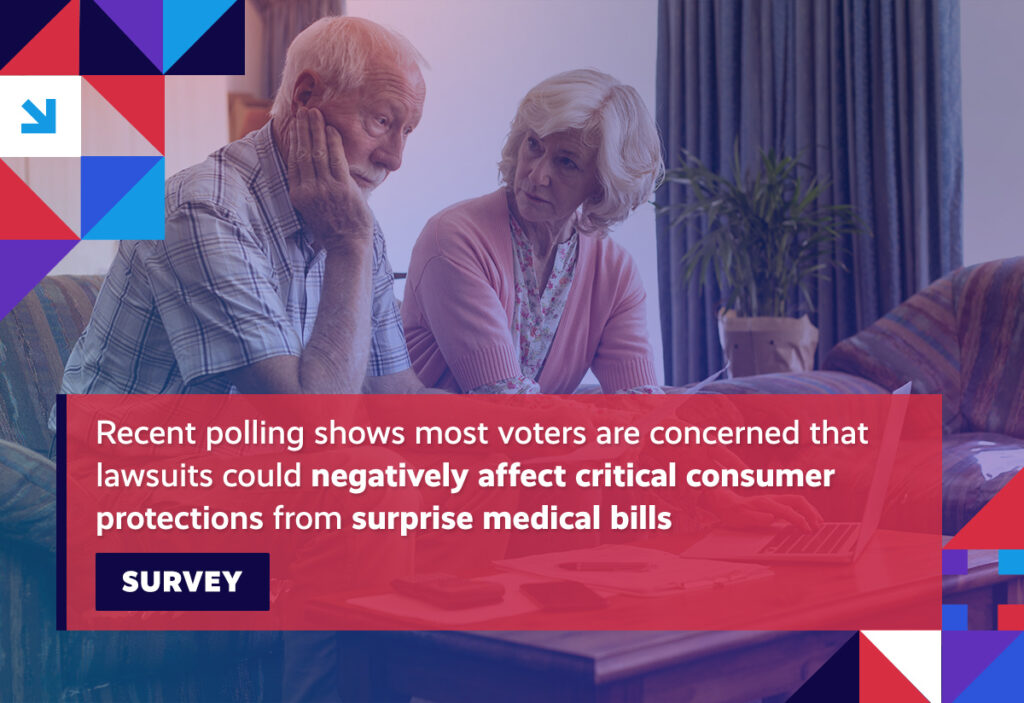Critical consumer protections from surprise medical bills face their latest test; a new legislative package seeks to address hospital consolidation; patent abuse keeps the price of inhalers artificially high; and, Medicare-eligible beneficiaries continue to choose Medicare Advantage plans.
We encourage you to stay involved as implementation efforts surrounding healthcare reform progress. Visit the Health Action Network and be sure to let us know what’s on your mind.
Item of the Week

Week in Review
Surprise Medical Billing: With the Office of Management and Budget (OMB) now reviewing the rules governing how surprise medical billing disputes are to be resolved under the No Surprises Act, stakeholders are reminding regulators of the importance of the new regulations and urging them not to nullify its ability to protect consumers from the unexpected medical bills that can result when they receive care from out-of-network providers. As covered earlier this month, it’s estimated that, as a result of the No Surprises Act having gone into effect in January, more than 12 million surprise medical bills will have been prevented by the end of this year. With the OMB final decision expected this summer, the No Surprises Act still finds itself threatened by more than half a dozen lawsuits filed by providers challenging the guidance regarding the use of in-network, median negotiated rates for resolving billing disputes.

Hospital Competition Bill: There’s no shortage of research showing that when hospitals consolidate, not only do patient costs go up, but the quality of the care they receive also goes down. With the pace of these transactions trending towards “mega-mergers,” there’s growing concern over the outsized role that these conglomerations are playing in driving up healthcare costs. Now, new legislative proposals seek to address this pressing issue. Introduced earlier this month by Rep. Victoria Spartz (R-Indiana), the package of bills takes aim at hospital consolidation by, among other things, improving Federal Trade Commission (FTC) oversight of anticompetitive behaviors by tax-exempt hospitals, requiring transparency and the elimination of abuses in hospital billing, and providing more patient choice. The proposed bills have already earned the endorsement of multiple stakeholders, including the Council for Affordable Health Coverage and the National Federation of Independent Business (NFIB).
Rx Patent Abuse: As highlighted recently, pharmaceutical manufacturers have become adept at exploiting patent laws to their sole benefit. A new study examines the impact that these tactics have had on patients suffering from asthma and chronic obstructive pulmonary disease (COPD). That analysis, published in Health Affairs, took a look at the strategies that brand-name inhaler manufacturers have deployed to preserve their market dominance. According to researchers, patients have been subjected to higher costs and innovation has suffered as a result of these companies taking advantage of the patent and regulatory system to artificially extend the market exclusivity of their products. Separately, the Congressional Budget Office (CBO) recently released analyses on a trio of bills targeting drugmakers’ anti-competitive practices. In short, CBO determined that the three patent reform bills would deliver significant savings to patients and taxpayers.

Medicare Advantage: Beneficiaries enrolled in the Medicare Advantage (MA) program report high levels of satisfaction with their plans according to a recent survey. In fact, nearly nine-out-of-ten MA enrollees expressed satisfaction with their coverage, with almost two-thirds saying they were “very satisfied.” The survey goes on to report that beneficiaries chose MA over other forms of Medicare owing to the program’s affordability and comprehensiveness. This reinforces what enrollees have been saying elsewhere, in particular, how the program enables seniors and persons with disabilities to access comprehensive benefits and services at prices they can afford.
Spotlight

| You can keep up with the latest by following the Health Action Network on Twitter and by liking us on Facebook. And, be sure to check us out on LinkedIn, too. As always, let us know if there’s something you’d like to see covered in a future newsletter. |
